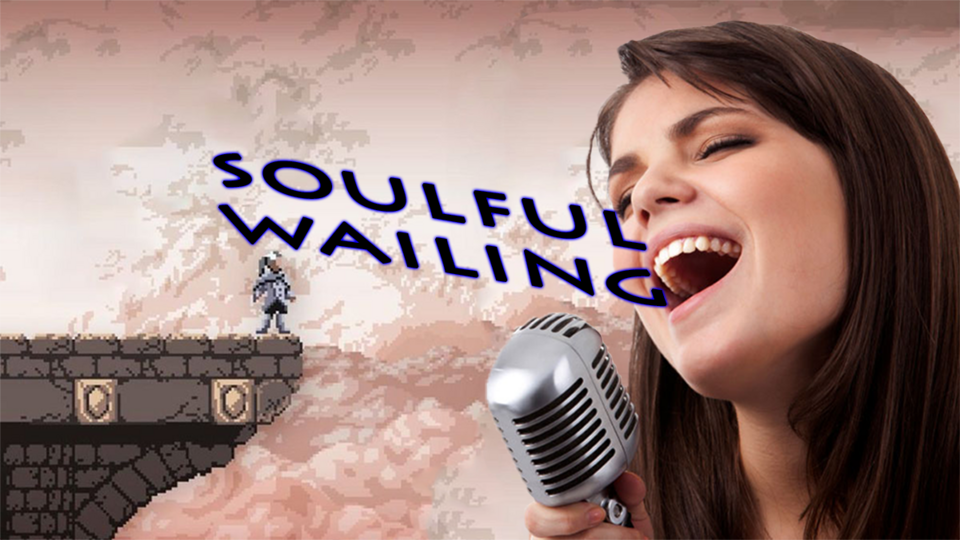How faithful should a sequel be?
By PurpleShyGuy 4 Comments
Should a successor branch out to something new, even if it alienates fans?
At the start of the month I often have a rummage through the old PS Plus bucket to see if anything catches my fancy, which it did by a game called Axiom Verge 2. As someone who hasn’t played the first Axiom Verge my expectations for the sequel, was that it was a Metroidvania and I was in the mood for a Metroidvania. Which might have been a privileged position, because to my surprise this game seems to be pretty divisive. A lot of the ire towards Axiom Verge 2 seems to come from Axiom Verge 1 fans taking umbrage with the dramatic shift in pace and tone. The first was well known for its surreal and often nightmarish locations along with showering the player in firearms in which to fight bosses that had dramatic and menacing entrances.
While the second has – relatively – more grounded locales to explore that deemphasises combat by reducing your arsenal to a boomerang and an ice pick, with bosses that kind of just waddle onto the screen with barely any fanfare. While Axiom Verge 2 is unmistakably an Axiom Verge game, right down to the crunchy sound effects waging war on your eardrums, it’s just a different kind of flavour of Axiom Verge. But this brings up the question: how faithful should a sequel be? I suppose the obvious answer is that a sequel should be an improved version of what came before, addressing issues and expanding on what was good in the original. Yet, the problem with this line of thinking is that it results in sequels without much of an identity of their own. The Bayonetta series always springs to mind in this regard, with Bayonetta 2 certainly sanding down some of the rough edges of its predecessor, but at the same time, a lot of the good it has is the very same good that could be found in Bayonetta 1. For all of its many faults, at least you can say Bayonetta 3 was trying to do something different with its combat system.
Axiom Verge 2 in many ways goes against what is expected of a sequel, taking on the old adage of addition through subtraction. While it is human nature to view addition as always better, there are many examples of where taking away has lead to improvement. Now, Overwatch 2 could be called a sequel in the same way a slingshot could be called heavy ordnance, but one thing I did appreciate is the reduction of certain mechanics, namely anything that slows, stuns or blocks. But when you say that Mei’s freeze gun no longer freezes people, it is easy to understand how that can be perceived as a negative, yet the overall result is matches that flow far better due to changes like these. Again, you can point the finger at the expectation that sequels should be bigger (and theoretically better), but as Potemkin from Guilty Gear will tell you “numbers only say so much.”
Perhaps it’s the name that’s the true culprit in all of this, since when you pick up a game called Axiom Verge 2, you expect more of what you enjoyed about the original. Somewhere in a parallel universe, Axiom Verge 2 might have gone under a different name and I do wonder if that would have made people be a little more forgiving of its differences. I mean, nobody ever complains that Bloodborne strays too far from the Dark Souls formula because it is clearly labelled as something different, despite there being many similarities between the two. On a cynical level, you could say that reusing a name guarantees a returning audience, we do live in a world where a name is so important that developers are outright just remaking games, so they can use the same title after all. I haven’t even played Resident Evil Village yet, but I’m going to play the Resident Evil 4 remake day one, not because I think it is going to a like-for-like copy of the original, but because it has Resident Evil 4 in the title.
When it comes to Axiom Verge 2, it can be easy to sit there, holding a glass of 1811 Chateau d’Yquem, pinky extended, claiming that the ignorant masses just don’t understand the value of something different, but I’d like to believe we’ve all had that moment where more of the same would have suited us just fine. I remember passing up Banjo-Kazooie: Nuts and Bolts because they put cars in it, and I didn’t want cars in it, I wanted the game I played as a kid but with prettier graphics. Though, many years removed from that feeling, I tend to side with sequels going in an unexpected direction rather than just adding to what was already there. Not to mentioned that developers these days are so damned skilled, that they usually succeed in bringing most of their ambitious plans to fruition at game one. Back a number years ago, sequels were usually a way to fully bring together concepts that didn’t quite reach their potential the first time around. Look at the Uncharted series for example, if Naughty Dog never went back to it, it would consist of a single mediocre game with some nice water tech instead of the blockbuster romp its known for today.
I understand the disappointment with Axiom Verge 2, there’s almost this unreasonable sense of betrayal when a developer decides to venture too far from its roots. But in the end I think the medium is a richer place with sequels like these, because after all, Axiom Verge 1 still exists, ready for you to play it, and after enjoying Axiom Verge 2 so much, I might just do that.

